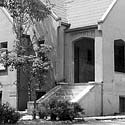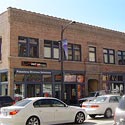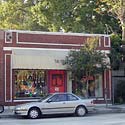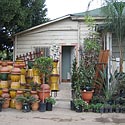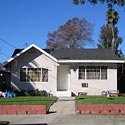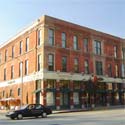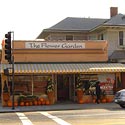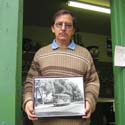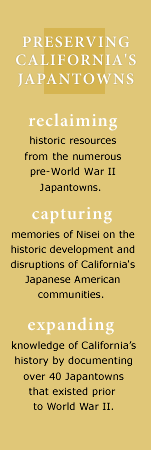 |
PasadenaPasadena’s Japantown, concentrated in the Central Business District and South Raymond-Fair Oaks Avenue industrial-commercial district, was established in the early 1900’s. Moving from agricultural work throughout California, Japantown communities began to develop in urban centers. While some Japanese immigrants became more conversant in English, they often branched into related businesses, such as wholesale and retail produce, grocery stores, nurseries, and gardening. Also, many found work in domestic services as houseboys, laundry service, cafes, and boarding houses. In 1920, 42% of Japanese in Pasadena were gardeners, 42% were in the service fields; and 17% were small business owners. Go here to view the maps of Pasadena's Japantown businesses in 1940. By the 1940’s, many Japanese proprietors had found their niche in the nursery business, with 17 florist and nurseries listed in Pasadena. The first Japanese-owned nursery may have been Nippon Nursery, but has since been demolished. Lincoln Nursery established in 1930 by Tokohei Matsuzawa, had been the oldest Japanese owned nursery in continuous operation in Pasadena until it was recently sold. ›› CLICK TO ENLARGE.
PROFILES
| ||||

Pasadena Union Presbyterian Church, established in 1913, resulting from a merger of Japanese Friends Mission and Japanese Congregational Mission.. During the war years, the church stored belongings for its members, and served as a dormitory and job placement facility for returning Japanese. The former church site was lost due to the construction of the 210 freeway. Although many key cultural institutions established prior to 1950 did not survive, the Presbyterian church continues its religious and community activities at its current location in Altadena, an area where many Japanese resided.
Serving as a hostel for returnees in 1945, the photo shows the Honor Roll of Japanese Americans in service displayed prominently on the building façade of the former site. Courtesy of Bancroft Library.

Started by German immigrants in 1904, Lincoln Nursery was purchased by the Tokohei Matsuzawa in the 1930’s. His daughter and son-in-law Mary and Henry Takenouchi ran the business until a few years ago. With the desire for the continuance of a nursery, they sold their property to long-time customer and former gardener, Ramon Franco. The former family home and garage structures on the lot have been converted into retail, sales, and office space.
Pasadena still holds one Nikkei nursery established before WWII. Bellefontaine Nursery, established just prior to evacuation by Kuniyoshi Uchida. Uchida was also a charter member of Japanese Union Church. The nursery continues in operation by members of the Uchida (and Yamada) families.

Opened in 1915, the Yamato Company, specialized in Japanese art and dry goods, art work, and kimonos. The store owned by W.T. and Michi Suzuki was forced to close its doors during to the mass evacuation in 1941. The Art Deco building at 102 E. Colorado still stands today and now houses Hooters Restaurant, and the Verizon Wireless Store.

This corner shop, the former site of Raymond Florist, was built by J. Oshiro in 1933. While there are a few extant florist sites, The Flower Garden is the only pre-World War II florist site in Pasadena that still continues the same line of business. Mr Oshiro had acquired the adjoining Victorian on Raymond Street in the late 1900’s.

New England Hand Laundry, was operated by Chosaburo and K. Sameshima in 1910., By 1940, the laundry operated out of this location at 217 South Fair Oaks, which now houses The Folk Tree store. Pasadena held three Japanese owned laundries just prior to WWII;the Sameshima Laundry drew its primary customers form the city’s luxury hotels: the Green Hotel, the Raymond, the Maryland, and Huntington Hotels.

Like many Japanese businesses operated from the home, the Like many Japanese businesses operated from the home, the Matsumoto residence also served as the Rafu Shimpo branch for Pasadena’s Japantown. A neighbor, Gilbert Perry, now 83 years old and still living next door, delivered Rafu Shimpo newspapers in the late 1930s. He rode his bicycle with three other youths to the delivery point, the Red Car Station on Fair Oaks in Old Town Pasadena. For personal reflections on the volunteer survey, see Naomi Hirahara's comments of January 2007.

The Mikado Hotel occupied this 3-story brick Beaux Arts commercial building, prominently located on the corner of Fair Oaks and Colorado Blvd. The Hotel Carver, a boutique hotel, occupied the building until the early 80’s.

Ramon Franco, now owner of the Lincoln Nursery, and a former customer when it was operated by the Takemuras, shows a photo of the Red Line cable car that used to run right by the nursery.
